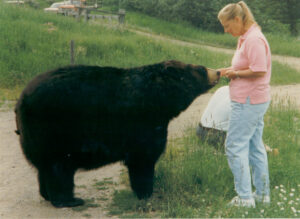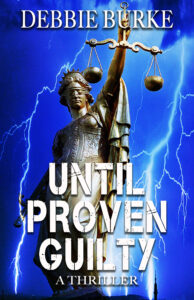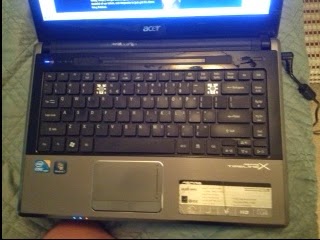Writing a novel is a big undertaking, especially at first. It took me years before I discovery-drafted my first novel. Three more novels followed, all written by the seat-of-my-pants.
However, it wasn’t until I began studying the craft of novel writing and getting feedback on my novels, as I had done earlier for short fiction, that I began to make actual progress. Learning how to write a novel took time, as did learning how to write a fantasy novel which worked, and later still, how to write a mystery novel that spun a convincing mystery.
Today’s Words of Wisdom looks at three diverse aspects of writing novels. First, James Scott Bell gives us the three rules of writing a novel. Then, Elaine Viets shares succinct advice on how-to-write a mystery, given by a fictional detective. Finally, Robert Gregory Browne looks at the idea of knowing how to write a best-selling novel.

RULE # 1 – DON’T BORE THE READER
Can anyone disagree with that? Doesn’t it make sense that this should be emblazoned across the writer’s creative consciousness as the most foundational of all rules?
If you bore the reader, you don’t sell the book. Or, at least, if the reader does manage to make it to the end, you don’t sell your next book.
It’s a rule. In fact, it’s a law, just like gravity.
Which leads to:
RULE #2 – PUT CHARACTERS IN CRISIS
Novels that sell are about people in some kind of trouble. Conflict is the engine of story. You can create “interesting” or “quirky” characters all day long, but unless they are tested by trial they wear out quickly (here I will issue a confession: I’ve never been able to get past the first 50 or 60 pages of A Confederacy of Dunces, and I’ve tried. Believe me, I’ve tried).
Now, trouble can be generated in many ways. The narrator of Nicholson Baker’s The Mezzanine is simply trying to get from the lobby of his office building to the next level via an escalator. That’s the whole story, and the trouble is inside his head.
At the other end of the spectrum are the commandos in The Guns of Navarone.
The point is, every novel must have some fire, not just a layout of kindling and logs. That’s a rule.
RULE #3 – WRITE WITH HEART
I admit this rule is somewhat difficult to define. It’s a bit like what a Supreme Court justice once said about obscenity: “I can’t define it, but I know it when I see it.”
The novels that not only sell, but endure, have something of the author’s beating heart in them. We could run off a list of such novels, from To Kill A Mockingbirdby Harper Lee to the Harry Bosch series by Michael Connelly.
In my seminars, when we work on voice and style, I mention two novels that were publishing in 1957. They were as different from each other as Arbuckle and Keaton, and challenges for the publishers. Yet they both became bestsellers and, more to the point, continue to sell thousands and thousands of copies today.
They are Atlas Shrugged by Ayn Rand and On the Road by Jack Kerouac. No matter how you ultimately come out on the merits of either book, what can’t be denied is that every page pulsates with the author’s voice and vision.
So put your heart in every scene of your novel. It’s a good rule.
Now, when a writer says, “There are no rules,” I suspect what he’s really saying is there is no one way to do the things we’ve been talking about here. And that is mostly correct.
I say mostly because, over time, it has been demonstrated that there are fiction techniques that generally work better than others. A good teacher (or editor) is able to help students learn the things that tend to work and avoid the things that tend not to.
And then it’s up to the writer to make choices. If a writer decides not to follow a tried and true method, at least she should know why.
For example, we talk a lot about starting a novel off with a hook (or, as I like to put it, a “disturbance.”) But what if you want to start your historical with ten pages of setting and description? Well, you’re certainly allowed to. And maybe you’ll manage to make those ten pages so interesting that readers will wish they’d go on and on.
But the odds are you’ll bore them, as they keep on asking Who is this story supposed to be about? Why should I care about any of this?
You might then decide it’s better to use the technique of starting with a disturbance and dropping in details within the action. A technique you can learn and practice.
James Scott Bell—September 23, 2012
How do you write a mystery?
There are whole books on this subject.
But the best short advice is in Grafton’s new Kinsey Millhone novel, “W Is for Wasted.”
Private eye Kinsey Millhone talks about how she started investigating two mysterious deaths. One victim was a sleazy PI and the other was a homeless man.
Kinsey was drawn into the mystery by a call from the coroner’s office. The coroner was “asking if I could ID a John Doe who had my name and phone number on a slip of paper in his pocket,” Grafton wrote. “How could I resist?”
That had me hooked. But then Kinsey explained how to write a mystery:
“Every good mystery takes place on three planes – what really happened; what appears to have happened; and how the sleuth, amateur or professional (yours truly in this case) figures out which is which.”
There it is. The art of mystery writing in one succinct sentence. We writers are supposed to set up the story for the readers, help them find out what really happened, and tell it, giving enough clues to play fair but not give away the ending.
Grafton gives us another dollop of advice in Kinsey’s next sentence:
“I suppose I could put everything in perspective if I explained how it all turned out and then doubled back to that phone call,” she wrote, “but it’s better if you experience it just as I did, one strange step at a time.”
New writers and experienced ones need to remember Kinsey’s advice: Tell the story, one strange step at a time.
Many newbies try to be too clever. They don’t have the skills to deliver a twisted tale. They get lost in the maze they created.
Experienced writers get bored with the format after writing book after book. We try to start in the middle, or start at the end, or switch narrators, often to amuse ourselves. Too often, it simply confuses our readers.
Following the straight path, in Grafton’s footsteps, can be far more difficult. But she kept me interested for 496 pages. She also made me care about two people society considers worthless: a crooked PI and a homeless man who doesn’t even have a name.
Elaine Viets—January 16, 2014
But here’s the thing…
EVERYONE WANTS TO WRITE A BESTSELLER,
BUT MOST AUTHORS NEVER WILL
Because it’s completely out of your control.
If you sit down to write a “bestseller,” you are taking a wrong-headed approach to writing. Writing great fiction has nothing to do with writing bestsellers. Bestsellers are, by and large, flukes. Right place, right time. And not all bestsellers are created equal.
I can name a dozen of my friends who do everything right and should be on the bestseller lists, and authors who are and don’t belong there.
When I wrote Trial Junkies, I just wanted to write a great book. I had no idea it would go on to be an indie bestseller. Sure, it was something I hoped for, but I certainly wasn’t rubbing my hands together in anticipation of mega-sales. I just wrote the book I wanted to read and decided to let fate take care of the rest.
So don’t put all your energy into trying to write a bestseller. You should simply write the best book you can possibly write. A book you’re so excited about that you don’t care if you ever make a dime off of it.
I spent many years writing stuff that I knew would never sell. In fact, I didn’t even try to sell it, because I knew it wasn’t good enough. But I kept at it for several years. I wrote story fragments and screenplays and teleplays and partial novels and while I knew what I was producing was not quite there yet, I also knew, with great certainty, that it would be one day.
Sure, I had dreams of being Stephen King or Dean Koontz. We all do. But the reality is that most writers never make it to the lists, yet they still manage to have wonderful careers.
Should you forget about your dreams?
No. Sometimes they’re all you have.
But any thoughts of bestsellerdom should be relegated to the back part of the brain. You have a story to write. And that’s all you should be thinking about.
If you publish it and it manages to reach one of the bestseller lists, that’s just gravy.
So there is no How to write a bestseller.
Robert Gregory Browne—May 4, 2016
***
There you have it, three pieces of advice on different aspects writing novels. Now we’d like to hear from you.
- Do you have any “rules” to share for writing a novel?
- What do you think about Kinsey Mallone’s advice for writing a mystery? What advice would you add?
- Do you have dreams of bestsellerdom? What keeps you writing your novel?
- What is the most challenging part of writing a novel, for you? What is the most enjoyable?





